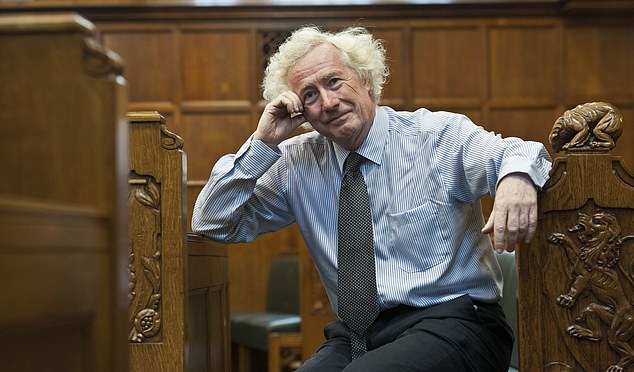Lord Jonathan Sumption is a well-respected British judge and historian, who has served as a Justice of the Supreme Court. But what he now says about the increasing power of lawyers in the interpretation of the law is deeply significant.
I have been much impressed, this year, by his short book Trials of the State: Law and the Decline of Politics in which he warns that the law, including the European Convention of Human Rights, is appropriating law-making which rightly belongs in national parliaments.
Democracy
He particularly criticises the way in which judges and lawyers have effectively bent abortion law in Northern Ireland, with scant reference to parliamentary democracy. In a democracy, he writes, the pub ‘own’ the law: it should go through the due process of parliament, not handed down to the people by lawyers and judges.
He has no desire to defend the prohibition on abortion in Northern Ireland, he writes, but he was disturbed that the judges of the current British Supreme Court thought that no weight should be given to the “democratic judgement of the Northern Ireland Assembly” (which had decided against liberalising the law). The President of the Court, Lady Hale, declared that courts were in a better position to “weigh the evidence, the legal materials and the arguments in a dispassionate manner, without the external pressures to which legislators may be subject”.
In other words, lawyers should make decisions without any input from the electorate or the people!
Opinion
As Jonathan Sumption stresses, abortion is not a technical, legal question: “It is a profound moral issue between different bodies of opinion in Northern Ireland.” The lawyers have no business changing the law in this way, or even having an opinion on what the law “should” be.
Lord Sumption, who is carefully neutral about his own views, explains how the European Court of Human Rights (which is separate from the EU) has consistently expanded its remit in a manoeuvre of “mission creep”. It was originally set up to rule against torture and genocides.
But Article 8 of its Convention has expanded to every area of personal ‘autonomy’, and many other highly disputable cases where human rights are asserted. The 47 signatory countries to the ECHR do not always realise that the judges in Strasbourg are gradually making more law for citizens than their own parliaments.
This is a truly important issue.
***
If anyone should wonder why marriage between cousins is usually prohibited by canon law they need only look at the case of the Spanish Habsburgs’ family tree.
An analysis of portraits of 15 members of the Spanish Hapsburgs (from the early 1500s to the early 1700s) has shown a strong correlation between ill-health, facial deformities and a habit of inbreeding.
The famous lantern-sized ‘Hapsburg jaw’ is evident in the portraits of Philip IV of Spain, Ferdinand II of the Holy Roman Empire and the afflicted Charles II, the end of his line.
Charles’s parents were consanguineous uncle and niece.
He was his parents’ son, cousin and great-nephew. By the age of 35, he was senile, lame, epileptic and infertile.
This inbreeding was always known about, but the genetic research has now been scientifically examined, published by Francisco Ceballos in the Annals of Human Biology.
***
Alone and penniless…the sad demise of Kathleen’s son
During the autumn, I wrote briefly about Kathleen Dolan, who was probably the most famous radio voice in Ireland during the 1940s and 50s. She died in 2003.
Now her son, Randal MacDonnell has died, too, in Morocco, aged 69. The obituaries describe his life as being extremely rackety – he assumed fantasy identities and was accused of stealing Georgian silver from Luggala, the Guinness mansion in Wicklow.
I met Randall a couple of times and instinctively felt he was spinning me wild yarns. Yet he did write a fine architectural book called The Lost Houses of Ireland.
Sadly, he died alone and penniless and his remains, in a Tangiers mortuary, were left unclaimed.
The MacDonnells of the Glens of Antrim became Catholic in the 1930s. However, the Anglican church in Morrocco is raising funds to bury Randal.


 Mary Kenny
Mary Kenny Lord Jonathan Sumption
Photo: DailyMail
Lord Jonathan Sumption
Photo: DailyMail 